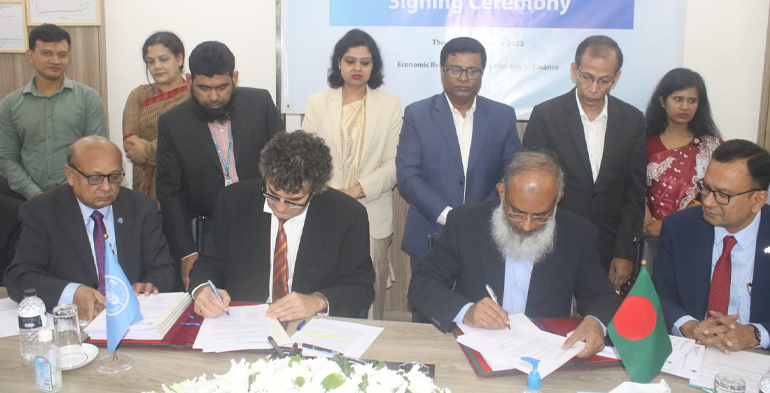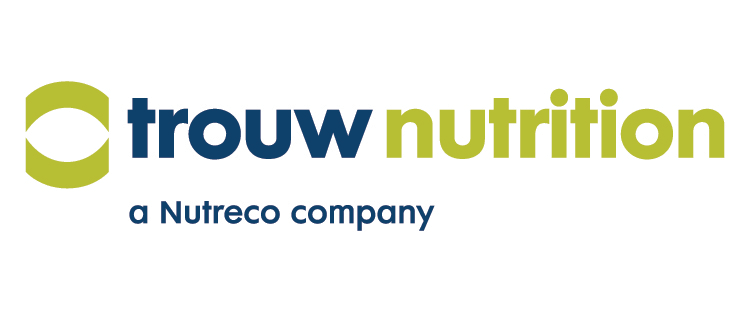
Agrilife24.com: The Food and Agriculture Organization of the United Nations (FAO) and the Economic Relations Division, Ministry of Finance of Bangladesh Government signed four agreements today to support Bangladesh in its efforts to improve food and nutrition security.
The four agreements are Technical Assistance to the Diversified Resilient Agriculture for Improved Food and Nutrition Security project (RAINS-TA), Accelerating Economic and Social Inclusion of Smallholder Farmers through Strong Producers’ Organizations (ACCESS), Public-Private Blended Finance Facility for Climate Resilient Rice Landscape, Integrating Improved Agricultural Practices and Market Linkages to Improve Nutrition and Incomes of Smallholder Farmers in Ukhiya and Kutubdia Subdistricts of Cox’s Bazar District. The agreements are signed by Md. Shahriar Kader Siddiky, Secretary of the Economic Relations Division, Ministry of Finance and Arnoud Hameleers, FAO Representative in Bangladesh ad interim.
RAINS Technical Assistance will continue for 4 years with USD 4 million budget
The RAINS project with the total budget of USD 20 million is implemented by the Ministry of Agriculture. The project is funded by the Global Agriculture and Food Security Programme (GAFSP) of the World Bank, and the International Fund for Agricultural Development (IFAD) is serving as the supervising entity. The technical assistance part of RAINS, worth USD 4 million; it is a grant and funded by the Global Agriculture and Food Security Programme (GAFSP) of the World Bank, the International Fund for Agricultural Development (IFAD) is serving as the supervising entity, and FAO as the TA supporting entity.
RAINS seeks to enhance the resilience of the agriculture sector in three major climate hotspots of Bangladesh, namely the coastal, drought-prone, and northern char regions. The project spanning four years, will implement diversified, resilient and nutrition-sensitive production systems and improve off-farm opportunities along value chains in 14 districts of the nation. It aims to improve food and nutrition security resilience of rural households facing environmental and economic shocks, and is set to directly improve the income and nutrition of 420 000 people by specifically targeting communities who are most vulnerable to the impacts of climate change.
Scaling up for external shocks and crises
Accelerating Economic and Social Inclusion of Smallholder Farmers through Strong Producers’ Organizations (ACCESS) also received a grant of USD 3.26 million under GAFSP. ACCESS will be implemented jointly by FAO and the Sara Bangla Krishak Society (SBKS), a national network of Producers’ Organizations, that has already successfully partnered with FAO under a previous GAFSP pilot project—the Missing Middle Initiative (MMI). ACCESS will work in 60 climatic hotspot communities to improve the livelihoods of smallholder farmers so that they are more resilient to external shocks and crises. The project will scale up the successful MMI approach which has already resulted in an average 35% increase in annual household income for 10 000 farmers. RAINS and ACCESS are grants from GAFSP which Bangladesh applied and won in the competition that 40 counties participated.
Supporting marginal and smallholder farming families
Integrating Improved Agricultural Practices and Market Linkages to Improve Nutrition and Incomes of Smallholder Farmers in Ukhiya and Kutubdia Subdistricts of Cox’s Bazar District project will be implemented with the budget of USD 300 000. It aims to promote climate-smart, nutrition-sensitive agriculture among primary school students and their families and improve the livelihood of farmers through. The project will provide agricultural inputs, training on nutrition and dietary diversification, and establishing market linkages to 2 700 marginal and smallholder farming families from the host communities as well as 140 primary schools in Ukhiya and Kutubdia sub-districts.
The project is a joint initiative between the Food and Agriculture Organization of the United Nations (FAO) and the World Food Programme (WFP), funded by the U.S. Department of Agriculture McGovern-Dole Food for Education Program, and is implemented in collaboration with the Department of Agricultural Extension (DAE) and the Bangladesh Institute of Research and Training for Applied Nutrition (BIRTAN).
Regional project for rice landscapes
Public-Private Blended Finance Facility for Climate-Resilient Rice Landscapes is a regional project to be implemented in Bangladesh, Cambodia and Vietnam; and funded by the Global Environment Facility (GEF). With the budget of USD 120 000 this project will support the design of a new blended finance facility to catalyze public and private financing for climate-resilient rice landscapes, value chains and livelihoods. It will support public and private sector investment to scale-up adaptation and resilience-building in rice landscapes across Asia.
The project aims to enhance the capacity of an estimated 6-9 organizations (financial institutions, farmers' organizations, private sector) and about 6 250 individuals. FAO will implement the project together with various partners such as Sustainable Rice Platform (SRP), World Business Council for Sustainable Development (WBCSD) and relevant government agencies in the project's target countries.
Nur Ahmed Khondaker, Assistant FAO Representative (Programme), said “Collaboration is key for achieving food and nutrition security resilience to challenges especially environmental”. Arnoud Hameleers, FAO Representative in Bangladesh ad interim, said “Through these projects signed today, we will be once step closer to build a more resilient future for Bangladesh’s agricultural sector.”





















